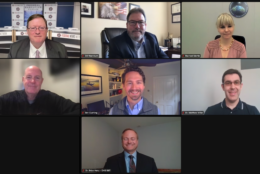Technology
-
Join us for a panel discussion with moderator, Tom Temin, and agency and industry leaders who will discuss strategies for breaking down and consolidating data silos, integrating multiple data sources and assuring the availability of relevant data wherever it might be needed.
October 16, 2023 -
Incremental changes to CX can help agencies reach a more human-centered, personalized approach in their interactions with the public.
October 16, 2023 -
In the pantheon of cybersecurity risks our federal government currently has on its plate, a quantum cyberattack may not be the immediate “front burner” issue. But it’s still a red-hot risk. Cryptographic algorithms secure everything from our industrial control systems to our national defenses to the entire U.S. financial system.
October 16, 2023 -
Machine learning and artificial intelligence continue to play an important role in the evolution of agency people management, processes and technology. But how is the technology evolving to meet tomorrow’s needs?
October 16, 2023 -
Federal agencies and contractors alike face increasing cybersecurity, fraud, sanctions and supply chain risks stimulated by geopolitical events. Experts at Guidehouse say an important strategy to mitigate risk is to simply have knowledge of the dynamics of geopolitical issues and effects they throw off.
October 16, 2023 -
In an address to the Association of the U.S. Army, Gen. Randy George, the service's new chief of staff, demanded a simpler, easier-to-use network. He's the latest in a long string of Army chiefs to make the same request, but officials think it's finally doable because of recent institutional changes.
October 16, 2023 -
GSA plans to centralize its application security program amid a broader push to ensure the government only relies on secure software.
October 13, 2023 -
Building trust is essential for businesses working with the federal government. The key is to start by making the effort and investments necessary to secure your cyber supply chain. Acting in good faith and providing transparency will demonstrate trustworthiness and create more business opportunities.
October 13, 2023









